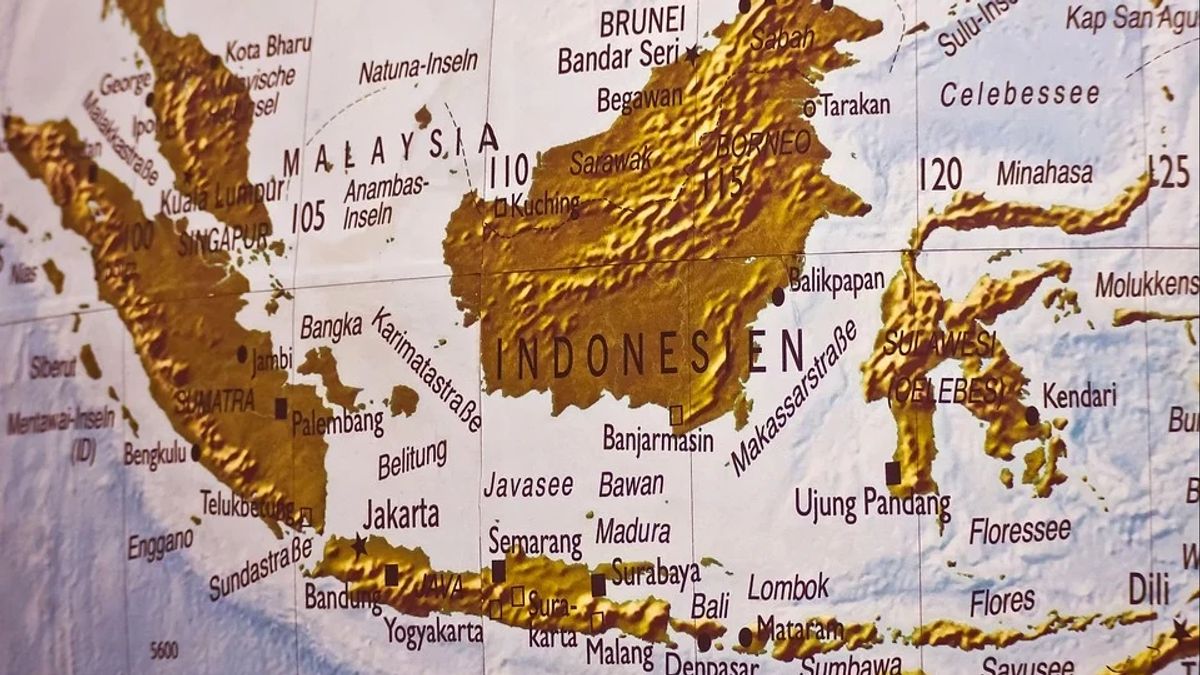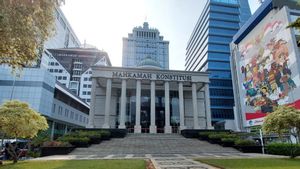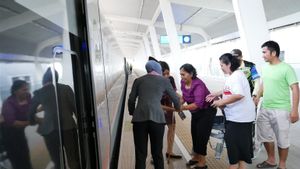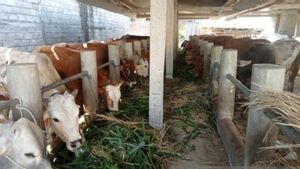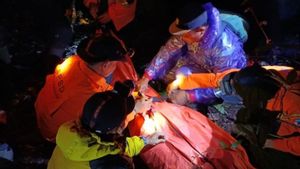JAKARTA - Acting Director General of Territorial Administration Development of the Ministry of Home Affairs, Safrizal, said that as many as 102 districts / cities are preparing to welcome a new normal phase. This area is said to have been unaffected and there are no more new cases of COVID-19.
"Some provinces which are categorized as 102 areas which are categorized as not yet affected are heading for the implementation of a productive and safe society. Some of these areas are preparing protocols to adopt guidelines prepared by the government from various Ministries / Agencies that have been approved by the Ministry of Health," Safrizal said at the conference. press broadcast on the BNPB YouTube account, Friday, June 5.
He added that currently, there are 139 districts / cities that are at low risk or fall into the yellow zone. Then, there are 180 districts / cities that are still in the orange zone or at moderate risk, while those that have high risk or are in the red zone are 85 districts / cities.
Furthermore, Safrizal said, there were a number of provinces where the reproductive rate or R0 was above 1 or described transmission as still occurring. These provinces include North Sumatra, West Sumatra, Bengkulu, Bangka Belitung, Riau Islands, East Java, Bali, West Nusa Tenggara and West Kalimantan. Then Central Kalimantan, South Kalimantan, North Sulawesi, Gorontalo, West Sulawesi, Maluku, North Maluku, Papua and West Papua.
Meanwhile, provinces where the number of cases has decreased are Aceh, Riau, South Sumatra, Jambi, Lampung, DKI Jakarta, West Java, Central Java, DI Yogyakarta, Banten, East Nusa Tenggara, East Kalimantan, North Kalimantan, Central Sulawesi, South Sulawesi. , and Southeast Sulawesi.
For regions that will carry out a new normal phase, Safrizal asked local governments to implement policies based on the latest data and regional readiness. They are asked to continue evaluating while continuing to prepare for and be aware of the second wave of the spread of COVID-19.
"Continued reinforcement, massive testing with aggressive tracing and protection with vulnerable groups, people with disabilities, the elderly, women and children," he said.
Before entering into the new normal phase, there are a number of phases that will be carried out by local governments. First, the initial phase, transition phase one, transition two, and a new normal phase.
He said, there are benchmarks that must be achieved by local governments so that they can enter the next phase. So, all regions that will enter into the new normal phase must really prepare their regions.
In each preparation, the regions must pay attention to the direction of the Minister of Home Affairs and the Minister of Finance to continue to strengthen spending in the health sector, strengthen social safety nets, reduce the gap between people who have received social security, and strengthen the economic impact.
Previously, Doni Monardo, Chair of the Task Force for the Acceleration of Handling COVID-19, stated that the government is considering the opening of 9 economic sectors in 102 districts / cities with green zones.
The nine sectors are mining, petroleum, industry, construction, plantation, agriculture and livestock, fisheries, logistics and transportation of goods.
"The nine sectors are considered to have a low risk of the threat of COVID-19 but create wide employment opportunities and have a significant economic impact," Doni said in his written statement, Friday, June 5.
The consideration of opening the 9 economic sectors, said Doni, was taken by taking into account public health indicators based on epidemiological data, public health surveillance, and health services.
The opening of this economic sector will be preceded by education, socialization and simulation in stages. Doni emphasized that the relevant ministries will implement strict health protocols for the economic sector.
"The implementation protocol in each sector is made by the relevant ministries and institutions," he said.
Meanwhile, for monitoring and evaluation, Doni said, it was not only carried out by related ministries and institutions, but also with the assistance of the Task Force for the Acceleration of Handling COVID-19, as well as the community.
Doni emphasized that when a new COVID-19 case was found in its implementation, the Task Force could provide additional recommendations for closing economic sector activities to the relevant ministries.
As a precautionary measure, companies and economic sectors that have been opened must take decisive action when there is a potential for virus transmission to the community in the area.
"Companies and the management of the sector's area are obliged to carry out massive testing, aggressive tracing, and strict isolation in the distribution cluster from the area," he said.
The English, Chinese, Japanese, Arabic, and French versions are automatically generated by the AI. So there may still be inaccuracies in translating, please always see Indonesian as our main language. (system supported by DigitalSiber.id)
